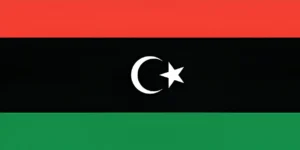The right person is one who possesses the necessary skills and values to thrive in any given role. Hiring the right person for the right job is a tough task.
If you’ve ever hired someone who interviewed well and demonstrated the right skills and yet lacked energy and passion for getting the job done, then you most likely put a round peg in a square hole.
No one sets out to hire employees in the wrong position, but it happens. However, with a few adjustments to how you ask questions during the interview, your ability to match the right candidates in the right jobs should improve remarkably.
Below are 5 interview tips to aid your decisions to hire the right person for the right job in your organisation:
5 Interview Tips to Hire the Right Person for the Right Job
Be Clear and Concise
What are the top four competencies needed in your ideal candidate? Being clear on what you’re looking for will eliminate the need to fall back on your guts.
One way to ascertain the ideal competencies is to profile high performing employees in your organisation. Thereafter you can then proceed with answering these questions:
- What do they have in common?
- How do they do what they do?
- What is it about their work that demonstrates that they are the best fit?
Answering these questions will supply you with a reliable template of competencies you should be looking out for in your potential hires.
Tailor Questions to Ascertain Competencies
Every question you pose to your candidates must speak to the top competencies you’re searching for. Behavioural questions such as “Describe a time when you…,” are helpful with unearthing mines of experience.
Such questions are advantageous because the job applicant will not be able to pre-empt them beforehand, so your likelihood of effectively assessing the candidate’s abilities, necessarily increases.
As the candidate answers, pay attention to their verbal and non-verbal cues. Do the answers seem forced? Do they avoid eye contact? Are they speaking enthusiastically from a place of passion and earnestness, or do they seem nervous and fidgety?
Below are 10 traits you can assess in candidates using behavioural questions:
- Dependability e.g. → Describe a time you found very difficult to honour a commitment. How did you go about handling the situation?
- Adaptability e.g. → Describe a situation where you were under a tremendous amount of pressure because of numerous tasks competing for your time and attention. How did you handle the situation?
- Customer service e.g. → What is the toughest customer encounter you’ve experienced? How did you resolve it?
- Initiative e.g. → Tell me about a time you took an unexpected initiative. What was the outcome of that action? Follow-up: Can you tell me about another?
- Judgment e.g. → Tell me about a time when you had to make a difficult decision. What process did you go through to arrive at a decision?
- Ethics e.g. → Tell me about when you had to work with someone you did not like or respect. How did you manage through?
- Teamwork e.g. → Tell me about a time you had to set your interests or priorities aside in the team’s interest.
- Interpersonal skills e.g. → Describe a time you had a serious conflict with a co-worker. How did you handle the situation?
- Leadership e.g. → How would you describe yourself as a leader? Tell me about a time when you had to energise a demotivated individual or group? What steps did you take to get that situation under control? What was the result?
- Planning/organising e.g. → Describe your work management techniques? When you have a lot to do, how do you use the technique to plan and organise your work? Tell me about an instance when you applied this technique to a difficult situation. What was the result?
Maintain the Same Questions for the Same Role
Once you’ve finetuned your questions, use them as a framework for all candidates interviewing for the same role. This way, you’ll be able to compare candidates’ performance when making your final selection.
Improvise Where Necessary
As controlled as you would like the interview to go, do not be reluctant to go off-script if job applicants ask questions of their own. Though this may change the interview trajectory, it can be a good thing if well-regulated.
We have often found that the best interviews metamorphose into conversations that offer profound insight into the job candidate’s abilities, motivations, and passion. Nevertheless, do not get so far off course that you miss out on the answers you need to make a good decision.
Consider Skills, Desire and Culture
It is all too easy to get carried away with the euphoria of finding a well-experienced person. However, there are vital things to consider before settling for an applicant, no matter how qualified they appear.
To reduce your chances of putting the round peg in a square hole, get creative with probing to find answers to the following questions:
- Does the applicant have all the skills to do the job?
This is where assessments come in handy. Be sure not to hire any applicant without putting them to the test. At Workforce Africa, all applicants are presented with custom-fitted assessments to ascertain their ability to do the job. It is always a mistake to assume competency.
- Will they do the job?
If you’ve ever hired someone you confirmed as qualified, and they came on board, and you found yourself asking, “What went wrong? There’s a very high chance that you hired a skilled but unmotivated candidate.
An individual may have high-level skills, but if they don’t like what they’re doing, they’ll never succeed on the job. It would help if you took the time to uncover what motivates and drives the candidate before you commit to hiring them.
For instance, if you hire a programmer who desires to be a project manager, you’ve put the wrong person on the job.
- Will they fit into your culture?
Few things energise people as being in jobs that align with their values. A good mantra to hire with is: if their values don’t align, don’t hire.
Individuals whose personal characteristics and values fit into the organisation will last on the job and do a fantastic job of it. It is crucial to ask questions about that. Whatever you do, don’t rely on your gut. Don’t overlook red lights that indicate a bad fit.
In conclusion
Hiring the right person for the right job all starts with understanding what you’re looking for. Don’t go 100% with your gut feeling about a candidate. Instead, be guided by this 3-step process.
- Assemble a list of the top questions and qualifications that the ideal applicants must possess. If a candidate is well-experienced but fails to give the right answers in one or two areas or lacks the right qualification, they aren’t the right person for the job.
- Considering that you’ll rate candidates against the competencies that you have established for the position, be sure to keep notes or use a score sheet for each candidate during the interview process.
- Discuss your assessments to determine who the most outstanding candidate is as soon as possible after the interviews. Delaying this may cause you to lose vital clues.
Having talent management concerns for your team in Africa? Then schedule a consultation today at Workforce Africa. Let’s help you succeed.






